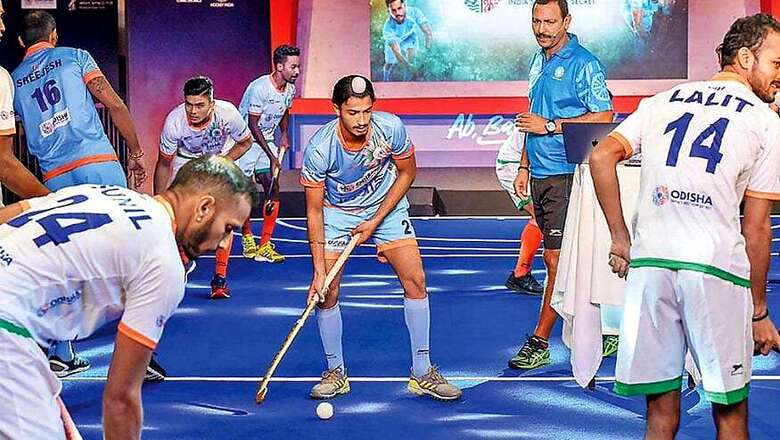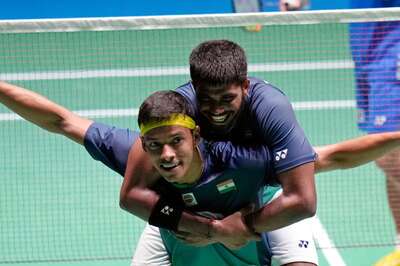
views
Six months ago Harendra Singh walked in through the revolving door of coaches in Indian hockey and his promise – rather his aim – was to ensure his side would play fast attacking hockey.
Since then India have won a silver at the Champions Trophy, a bronze at the Asian Games and recently won the Asian Champions Trophy in style. All this was after a disappointing fourth-place finish at the Commonwealth Games under Dutchman Sjoerd Marijne.
The coach admits that semi-final defeat against Malaysia in Jakarta wasn’t ideal but believes that his side has made plenty of progress and are mentally prepared for the mega event.
“The preparation for the World Cup has been on for a few years and this point as the coach I am happy because the approach and mentality to play attacking hockey is clear,” Harendra Singh told News18Sports from Bhubaneswar.
“We are capable of delivering and producing good results. The key for us will be to take it match by match. No one knows the outcome and we can only promise to put our best foot forward.”
When he began his stint, Harendra promised that his side would play attacking hockey and simple hockey – the process of achieving the desired results.
But what’s ailed his side has been lapses in the final moments – conceding crucial goals and giving the opposition a way back instead of slamming the door on them.
“There will always be more than one option when you are on the field and that’s where the decision making has to be spot on. Any team can concede in the final moments,” Harendra said.
“What we are working on a lot is trying to hold onto the ball in the final minutes and if the opposition can’t get the ball they can’t punish you. We have to be able to keep the ball and also keep an eye on the scoreboard.”
Controlling the play will be crucial to India’s chances at this tournament which they last won more than four decades ago, and the absence of Sardar Singh is considered to be a worrying factor. But Harendra is not bothered one bit and has full faith in captain and vice-captain – Manpreet Singh and Chinglensana Singh Kangujam.
“Manpreet and Chinglensana play the pivot role in the team, it is a very important role, and I am very confident that they will be able to deliver for the team when the need arises.”
“Every player has their individual legacy and then they move on at some point for the next in line to step up.”
When quizzed about the thoughts behind the team that has been chosen for the tournament, Harendra is very clear about the fact that he wants players who are versatile, and above all fit.
“Only the fittest players have been selected because we do not want any players who are injury prone during the tournament,” he said.
“I think the team is quite mature and have been playing together for four-five years now. All they need to do, is make sure they take the right decisions at the right time,” he reiterates.
Pressure of Playing at Home
The 2018 World Cup is being played in one of Indian hockey’s favourite grounds in the country – the Kalinga Stadium in Bhubaneswar. In recent years, the Indian team played the 2017 FIH Hockey World League and won bronze at the stadium and before that, they played the 2014 Champions Trophy in that location where they finished fourth.
“The players should use the crowd as their motivation and to be honest, I don’t think they will feel any pressure also because more than a few have played the Junior World Cup in Lucknow with big crowds.”
“But more importantly, the players focus should be on the ball and the situation in the game. That is more important,” Harendra said.
Historically, India does not have the best record at the World Cup and have not finished in the top four since the only time they won the title in 1975. And at the last World Cup hosted by India in 2010 in New Delhi, they finished eighth. That was, in fact, their best performance at the tournament in the last two decades.
Harendra, who is obsessed about achieving results, for one has his eyes set on changing the record and has told his wards to act accordingly too.
“Indian hockey has a very rich tradition. The boys, if they want to be part of history, they should create it for people to read and not be the ones reading it,” he signed off.


















Comments
0 comment